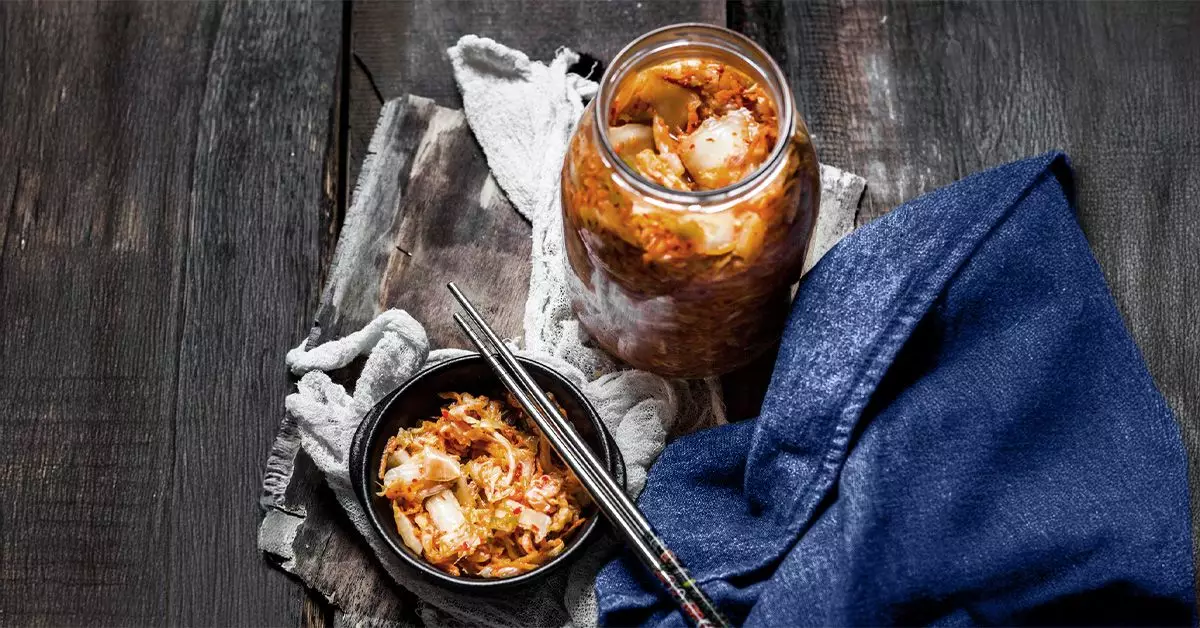Kimchi, a staple in Korean cuisine, is much more than just a side dish; it is a culinary icon celebrated for its vibrant flavors and probiotic potential. This fermented delicacy typically consists of seasoned vegetables like cabbage and radishes, imbued with spices such as garlic and ginger, and left to ferment for days. While it occupies a revered place in both cultural and culinary realms, it has become a subject of heated debate, particularly concerning its potential association with stomach cancer. Recent discussions have highlighted a precarious balance between kimchi’s celebrated health benefits and the possible risks it may entail.
Evident Contradictions in Research Findings
The link between kimchi consumption and gastric cancer risk presents a complex puzzle. Some studies suggest that there is a correlation, but the evidence is hardly definitive. A notable observation lies within the Korean American population, who are reported to experience stomach cancer at a significantly higher rate than their non-Hispanic white counterparts—12 times more likely, to be precise. Factors contributing to this disparity are multifaceted. While the salty nature of kimchi is often cited as a leading cause, it isn’t the only player in the game.
A meta-analysis from 2020, which examined various studies involving Korean populations, found an alarming statistic: an increase of just 40 grams of pickled vegetables daily was associated with a 15% increase in gastric cancer risk. This finding points toward the possibility that not only kimchi but also other pickled foods may contribute to an elevated risk, raising crucial questions about dietary practices in cultures where such foods are prevalent.
The Role of Salt and Additives
High salt intake is already known to be a risk factor for stomach cancer, and this raises concerns about kimchi, which is inherently salty. However, it’s crucial to understand that salt is merely one piece of a larger puzzle. Further complicating the narrative is data suggesting that specific lactic acid bacteria found in kimchi can secrete enzymes such as beta-glucuronidase and beta-glucosidase, both of which have been implicated in cancer development. These bacterial by-products shed light on the darker side of kimchi that might contribute to health risks, contrasting sharply with the probiotics’ benefits typically associated with fermented foods.
A Broader Perspective: The H. Pylori Factor
The high prevalence of H. pylori infection in many Asian populations adds another layer of complexity to this discussion. This bacterium can lead to increased inflammation in the stomach lining, significantly heightening the risk of gastric cancer over time. Interestingly, while only about 10-20% of individuals in the United States harbor this infection, rates soar to about 80% in various Asian countries. It begs the question: how much of an impact does H. pylori infection have on stomach cancer rates when juxtaposed with dietary habits?
In considering the broader spectrum of risk factors, it becomes apparent that while kimchi may carry certain risks, the degree to which it contributes to stomach cancer cannot be isolated from these additional influences, particularly H. pylori.
Navigating Dietary Choices and Health Risks
For individuals concerned about their risk factors, knowledge is power. Stomach cancer screening isn’t standard in the U.S., but those at increased risk—like Korean Americans—are often advised to discuss screening options with their healthcare providers. Noninvasive tests for H. pylori are available, offering a proactive approach for individuals wanting to mitigate their risk of stomach cancer. In today’s health-conscious society, awareness of one’s dietary intake alongside bacterial health is fundamental.
Ultimately, while kimchi may be a beloved part of many diets and brings with it a wealth of probiotic benefits, the growing body of evidence linking it to stomach cancer should not be brushed aside. Individuals must weigh the benefits against the potential risks, seeking out a balanced approach to their health and dietary choices while remaining informed about the nuances of their cultural staples.

